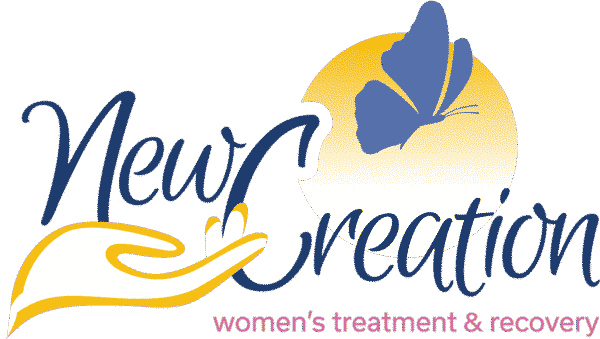Panic disorder is a serious mental health disorder that is distinguished by sudden and extreme bouts of panic. As an anxiety disorder, panic disorder makes it difficult to function daily and is extremely stressful. Commonly, individuals with panic disorder also struggle with addiction. As a dual diagnosis, this combination creates many issues. Fortunately, clients with such a dual diagnosis can heal. Through a combination of holistic treatment and therapeutic options, clients at New Creation Recovery can take steps toward a life where they have the tools to manage their symptoms and maintain their recovery.
Who Experiences Panic Disorder?
About 2.7% of the general population experience panic disorder over the course of a year. The prevalence is higher in women than men, and about 4.7% of individuals struggle with panic disorder at some point in their lives.
Symptoms
When an individual experiences panic disorder their symptoms are highly disruptive in their lives in many ways. Individuals with this type of anxiety disorder have frequent and unexpected panic attacks. These bouts of panic are not related to something specific, as they are for individuals with post-traumatic stress disorder (PTSD). Instead, they can occur at any time, making them very difficult to manage.
The symptoms of a panic attack can include the following:
- Pounding or racing heart
- Difficulty breathing
- Sweating
- Chills
- Chest pain or dizziness
- Stomach ache or nausea
- Tingling
Not all individuals who experience panic attacks will develop panic disorder. Individuals who struggle with panic disorder experience many panic attacks at regular and unforeseen intervals. They begin to fear when the next one will come, and, therefore, their panic attacks make it very difficult to function.
Risk Factors
The specific cause of panic disorder is unknown. However, it does tend to run in families. More research is needed to understand the specific genes involved and why some family members struggle with it while others do not. In addition to genetics, major stress or trauma can contribute to the development of this anxiety disorder.
Treatment
Effective treatment for panic disorder is available. It generally consists of a combination of medication and psychotherapy, or talk therapy. Medications used to improve symptoms include antidepressants, beta-blockers, and antianxiety medications. These medications help to control panic when it arises. However, they can also help an individual’s overall anxiety level to decrease, which can help improve the intensity of a panic attack.
In psychotherapy, clients work on understanding the inner workings of their panic attacks. This may include cognitive-behavioral therapy (CBT), which helps individuals understand the thought, emotional, and behavioral patterns that play a role in their panic attacks. With this information and support from a clinician, individuals can learn how to change these patterns. Additional therapies such as exposure therapy are also an option and can play a role in CBT for panic disorder.
Panic Disorder and Addiction
The symptoms of panic disorder are severe. This can lead individuals to seek a way out, for a moment without fear of panic. This is referred to as self-medicating symptoms. When individuals use drugs or alcohol as a method to do so, it can quickly lead to addiction. This is due to the physically addictive qualities and the behavior of substance use as a way of feeling better.
The dual diagnosis of panic disorder and addiction is one of the most common dual diagnoses, along with generalized anxiety disorder (GAD) and addiction. While some use substances as a way to self-medicate anxiety symptoms, substance abuse can also exacerbate anxiety symptoms and panic attacks. This leads to a cycle that increases substance use, the rise of addiction, and symptoms of panic disorder.
Healing From a Dual Diagnosis of Panic Disorder
When an individual is struggling with a dual diagnosis of any kind, it is important that their mental health is addressed. For panic disorder, this includes medication and psychotherapy. The specific type of each will vary. However, when dual diagnosis treatment incorporates mental health treatment, it helps clients manage their mental health symptoms, such as panic attacks, which improves their recovery from addiction.
Along with mental health treatment, individuals with a dual diagnosis must get effective addiction treatment that helps them maintain their improved mental health. Fortunately, for individuals with a dual diagnosis, including panic disorder, some medications have cross-over benefits. For example, some anti-anxiety medications can also be used to improve addiction recovery.
Treatment for panic disorder and addiction at New Creation Recovery often includes psychotherapy. As each issue is not separate in an individual’s life, they are also not separated in treatment. Clients work with a counselor to understand each issue and how they impact each other. This helps them to build tools to manage symptoms of their mental health challenges and those that will help them to be successful in recovery from addiction long-term.
Many individuals who struggle with panic disorder also struggle with addiction. While this connection is common, it does not make the path to healing any easier. At New Creation Recovery, we offer assistance, support, and treatment for individuals struggling with dual diagnoses, including panic disorder and addiction. If you are struggling with a cycle of panic and substance abuse, you can out of this cycle and regain your life – and we can help. Call us today at (877) 868-5730 to learn more about our treatment programs, and how we can help you take the first step toward a life where you are free from addiction with improved mental health and well-being.



